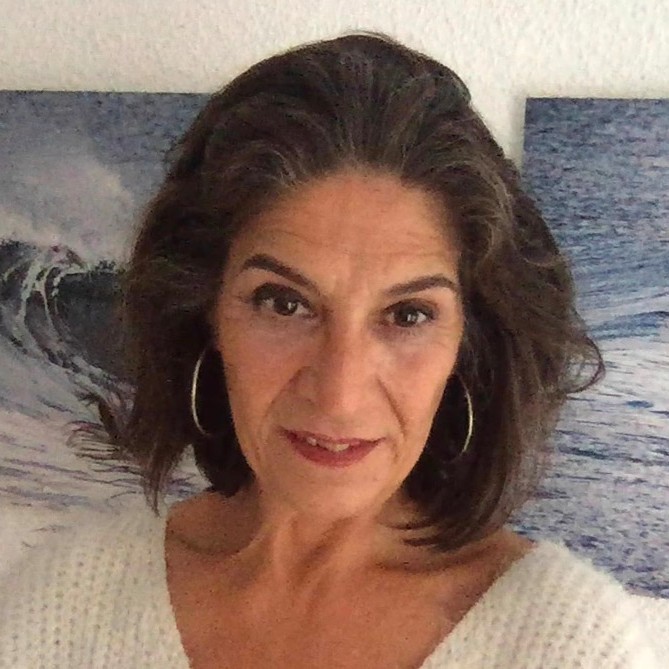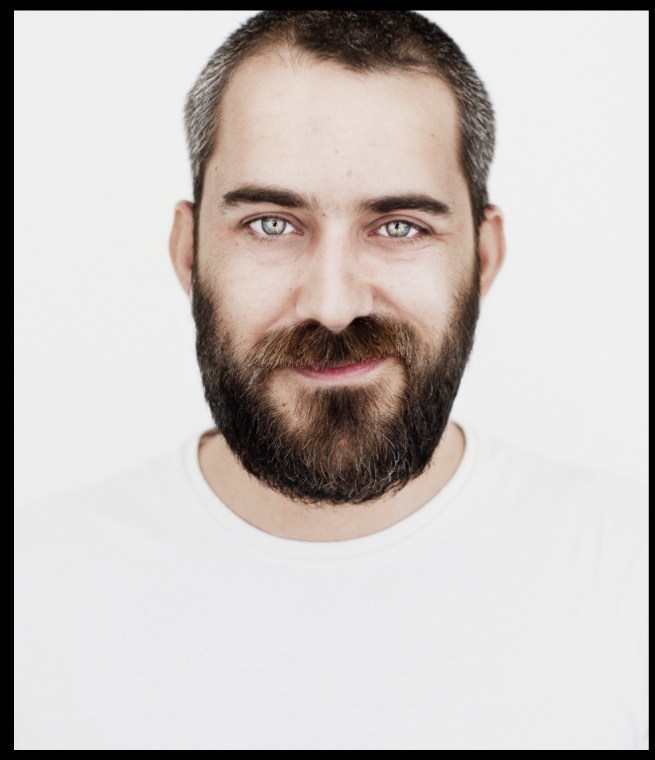Interviews
Teresa Arnal "Citizens are ready to take on more responsibility". Challenges after a Citizens' Assembly

A few months after the end of the Citizens’ Climate Assembly, many of its proposals are still looking for the political decision-maker to implement them. However, it cannot be said that so much shared effort did not bear fruit. Firstly, its 172 recommendations, which are a perfect guide for anyone who wants to approach climate justice through the eyes of citizens, and secondly, the constitution of the Civic Assembly for Climate, an association of citizens who emerged from the initial assembly process and who, inspired by all the work done, decided to form a group to continue promoting the citizen’s mandate. We spoke with Teresa Arnal, a member of the Assembly, who answered our questions about its origins, its composition and its main objectives.
Fundación Platoniq: Your website says that, at the end of the Citizens’ Climate Assembly, a sector of the participants decided not to put an end to the work that had been done. Where did this decision come from, was it spontaneous or the work of just a few people? How did it come about?
Teresa Arnal (Asamblea Cívica por el Clima): Yes, the will was majority and spontaneous. We were called to make a series of recommendations to Congress and the Government, and when we were finishing the last Assembly, which was in Madrid (the only one in person, due to COVID), the assembly members decided that we wanted to continue, to the point that the body in charge of managing what we were doing extended its work for six or eight months. During that time we were conducting interviews with all the Autonomous Communities (except Castilla y León, Castilla La Mancha and Murcia), meeting with their environmental technicians, both in person and online. And after that we felt that we were on the move and eager to continue. In fact, the association is made up of more than a third of the one hundred members of the Assembly. And I am sure that there are many colleagues who have not committed themselves because everyone has their own moment in life, but who continue to take part in other initiatives.
I believe that the path of the Assembly in Spain was marked by things that were very well done (although I am also self-critical). The design was very good and that made deliberative democracy become collective intelligence. Part of the success is that most people became very aware of the experience, and that gave them hope, which is something that citizens do not normally have. The other side is the anxiety that many of my colleagues had when they started to tell us what the story was about. Many of them even needed help from the brutal anxiety that comes when you are confronted with the climate problem, told not by politicians or the media, but by experts on the subject.
And were there any requirements to join?
The requirement we have at the moment is that we are members of the assembly. We are the promoter group of the State Citizens’ Assembly, however, we have already held talks with the assembly members of Mallorca, and we want to do the same with those of Catalonia, because the main idea is the creation of a European network. Those of us who have been to a Citizens’ Assembly have a very new experience, which is difficult to explain to people who have not been there. In my case, I was environmentally aware, but at the time I started participating, I thought that the motivations for such a project, being a government-driven initiative, would be somewhat questionable. However, when you go through the process, if it is done well, you discover the brutal power of a Citizens’ Assembly.
Those of us who have been through a Citizens' Assembly have a very new experience, which is difficult to explain to people who have not been through one.
In Spanish, citizen tends to be confused with popular, and I think the difference is that in a Popular Assembly many voices speak, but in a Citizens’ Assembly you end up with one voice, and that is something impressive, which comes about through agreement among diverse people. For me this was a tremendous learning experience, more than what I could also learn on climate issues. Even though we advocate for a climate solution, we are not specialists in this, but what we are experts in is citizens’ assemblies. That’s why we want to create this network, because something like this has no limits, even if we don’t get the attention it deserves.
Once formed, what exactly does your work consist of, apart from seeking to generate the network you mentioned?
Our work is voluntary and takes place in our free time, i.e. not as we would like it to. Right now we are working on several things at the same time, but we don’t get to everything. For example, we are trying to follow up on the recommendations we submit to the government, but it is a very exhaustive job and we don’t have time to do it the way it should be done. One of the failings I see in the Assembly is not having a body or a committee to ensure that the initiatives are implemented or developed. That is actually the important thing, because whether the recommendations are binding or not, we saw that in France it did not help. However, I do want them to be worked on and followed up.
Citizens’ assemblies are a new tool that still needs to be developed. They need to be implemented within the administration and, in addition to that, they need to be disseminated, which is what our administration has lacked. The commitment to confidentiality was positive, because it allowed us to work without pressure, but then we did not see the dissemination of our work, and that is a mistake. We need to disseminate the recommendations and have open discussions. Only then will we be able to improve this tool and make it really useful.
In other words, you share the diagnosis that is usually made of deliberative processes. In this sense, do you find yourselves strengthened or helped? What is the reaction of organisations beyond public institutions?
In principle, they open their arms to us, but I see that not everyone understands the initiative and there is a lot of confusion about what citizen participation is. People think that the Citizens’ Assemblies are just another form of participation, but this is not the case, they go beyond that. They are a more structured process that seeks to create a voice that represents the citizenry as a whole and diversity.
People think that the Citizens' Assemblies are just another form of participation, but this is not the case, they go beyond that.
This type of assembly is growing in Europe, and I believe it will continue to expand and gain momentum. Although certainly more slowly than we need, because in reality we need it very badly.
You have already told me a bit about it, but could you explain to me what steps you are taking to get to this kind of European assembly members’ federation or association?
For the moment we are organising a first event in Barcelona for assembly members from different European countries. We are taking advantage of the fact that Barcelona is the capital of democracy this year until October. The event will focus on deliberative democracy rather than climate change. Data protection law makes contact with people from other assemblies difficult, but we have managed to establish contact with assemblies from France, Austria, Germany, Luxembourg and Finland.
Virtual meetings have been useful, although face-to-face meetings are obviously more effective. The aim of the event is to do this and to get to know each other in person, share experiences and analyse the similarities and differences between the different assemblies. We want to focus on deliberative democracy rather than climate democracy, knowing that we are not experts in it.
Speaking of this federation, of these associations, there is something that is not normally talked about and that has to do with the sustainability of this type of projects. Do you consider any type of financing? What plans do you have in this regard?
The source of funding has to be in the form of grants, and grants usually go to specific projects. At the moment, we are working on two projects: a citizens’ assembly workshop and the European federation of assemblies that I mentioned earlier. We are currently investigating, in the case of the citizens’ assembly workshop, the possibility of subsidising two or three-day workshops. Participation in these sessions can even be sectoralised, i.e. citizens in general, third sector, business, trade unions, etcetera. Each workshop will be divided into two parts: a first informative part of what we have experienced, even bringing an expert, and a second practical part, where participants will be able to experience how a real assembly works.
Facilitators are essential to the smooth running of the assemblies. Their work includes managing the group dynamics, ensuring everyone’s participation, using active listening techniques and adapting the dynamics to the characteristics of the group. At the State Assembly we had a very positive experience with the facilitators. They were professional and efficient, and used a variety of techniques to maintain participation and focus, while respecting the diversity of everyone involved. Their work contributed to the success of the Assembly.
The last one. You said that as an assembly you make the distinction between deliberative democracy and representative democracy, calling for institutions to take on board the methodologies, objectives and ways of working of this more deliberative democracy. Why do you think this type of methodology should be incorporated into the normative institutional framework and what virtues do you see in it?
In the 21st century, communication and understanding are easier than ever before. Citizens are prepared to take more responsibility. Despite this, democracy today is in crisis, and the rise of fascism since the 11M attacks in Madrid has had something to do with it. What is happening is very serious, I never thought we could devolve in this way.
Citizens' assemblies are a tool for empowering people and improving democracy.
Citizens’ assemblies are a tool for empowering people and improving democracy. There are many reasons to implement them at all levels. Moreover, they adapt to a fast pace of life. For my grandparents, four to six years is a reasonable time to wait until you choose your representatives again, but for us that is an eternity. Moreover, governments can also benefit from citizens’ assemblies: they legitimise decisions, improve governance and respond to society’s demands.
Thank you very much, Teresa, for your time.
It has been a pleasure. See you soon.



